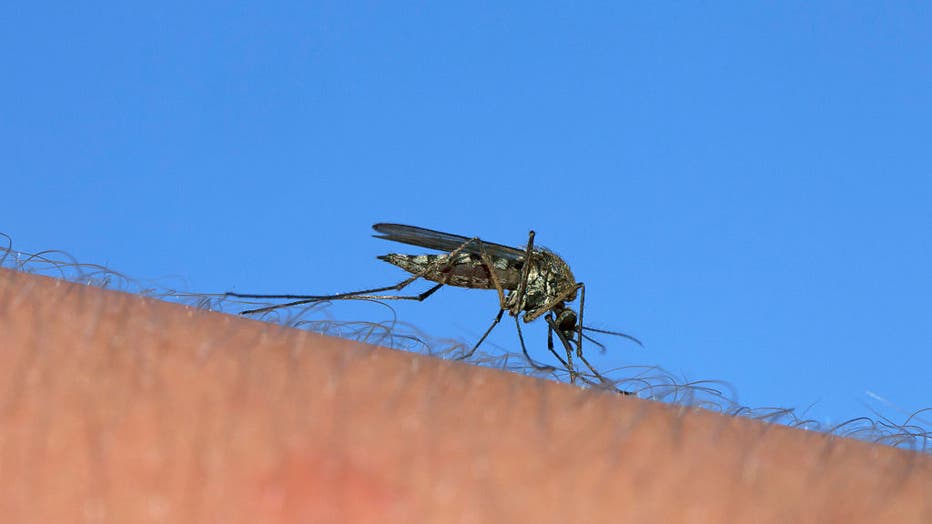Illinois confirms first mosquitoes to test positive for West Nile virus in 2021
SKOKIE, Ill. - The Illinois Department of Public Health has confirmed the first mosquitoes to test positive for West Nile virus in the state.
On June 9, the North Shore Mosquito Abatement District collected a positive mosquito batch from Skokie, which neighbors the city of Chicago.
As of now, no human cases of the virus have been reported this year.
"We are starting to see West Nile virus make its annual appearance," said Illinois Department of Public Health Director Dr. Ngozi Ezike. "Remember to take precautions to protect yourself from mosquitoes and the viruses they carry by wearing insect repellent and getting rid of standing water around your home."
Chicago resident is state’s first West Nile Virus death in 2020
IDPH says monitoring for the virus in Illinois includes laboratory tests for mosquito batches, dead crows, blue jays, robins and other perching birds, as well as testing sick horses and humans with West Nile virus-like symptoms.
Anyone who sees a sick or dying perching bird should contact their local health department.
West Nile virus is transmitted through the bite of a Culex pipiens mosquito, known as a house mosquito, that has picked up the virus by feeding on an infected bird.

Common gnat / common house mosquito (Culex pipiens) stinging human arm to feed on blood. (Photo by: Arterra/Universal Images Group via Getty Images)
Symptoms of the virus include fever, nausea, headache and muscle aches, and can last from a few days to a few weeks.
Additionally, IDPH says four out of five people infected with West Nile virus will not show any symptoms.
In rare cases, severe illness including meningitis, encephalitis, or even death, can occur, the health department said.
Those who are older than 60 and individuals with weakened immune systems are at higher risk for severe illness from West Nile virus.
In 2020, IDPH reported 39 human cases of the virus, including four deaths. However, the department says cases are typically underreported.
The state health department is encouraging residents to take the following precautions to stay safe from the virus:
- Make sure doors and windows have tight-fitting screens, and be sure to replace or repair screens that have tears or other openings. Also, be sure to keep doors and windows shut.
- Eliminate, or refresh each week, all sources of standing water where mosquitoes can breed, including water in bird baths, ponds, flowerpots, wading pools, old tires, and any other containers.
- When outdoors, wear shoes and socks, long pants and a light-colored, long-sleeved shirt, and apply an EPA-registered insect repellent that contains DEET, picaridin, oil of lemon eucalyptus, or IR 3535 according to label instructions. Consult a physician before using repellents on infants.
- Report locations where you see water sitting stagnant for more than a week such as roadside ditches, flooded yards, and similar locations that may produce mosquitoes. The local health department or city government may be able to add larvicide to the water, which will kill any mosquito larvae.
Additional information about West Nile virus can be found on the IDPH website.

